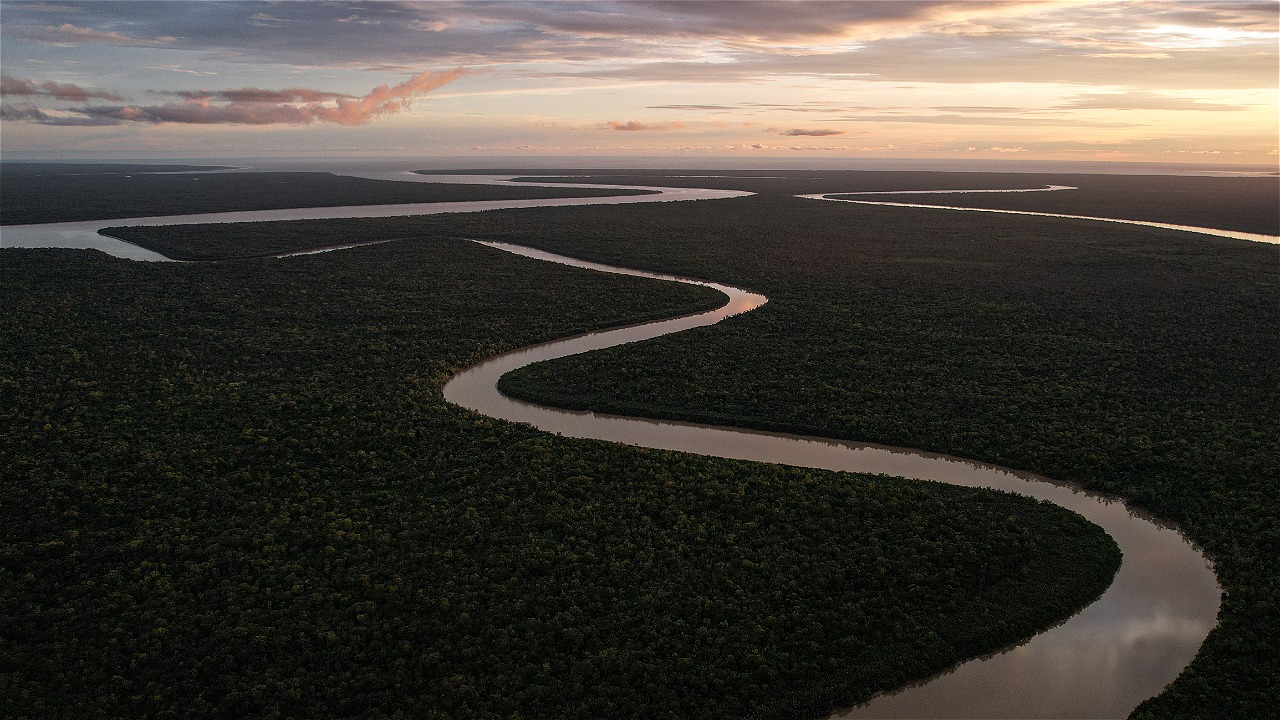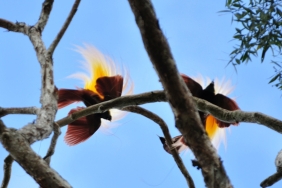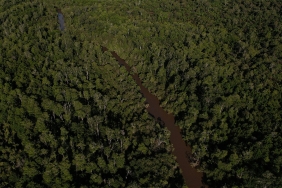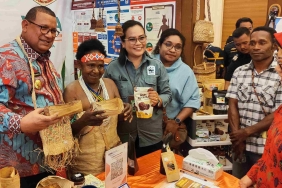PEEKING AT INDEPENDENCE FROM THE WINDOW OF EDUCATION IN THE LAND OF PAPUA
By: Blandina Isabella Patty (ESD Officer WWF-Indonesia Papua Program)
"Freedom is the right of all nations..."
This quote from the text of the Preamble of the 1945 Constitution of the Republic of Indonesia is a benchmark that the country we love is independent from the colonial period. And Indonesia as a great nation has been established for 71 years with 34 provinces spread from west to east of this country.
Every 17th of the 8th month, Sang Saka Merah Putih flies in every corner and corner of this country, from Aceh to Papua. Children in all cities and regions in this country always interpret it with flag ceremonies and various competitions. Even adults sometimes interpret it in the same way, perhaps because of the routine of August 17 for 12 years in elementary school to high school.< br />
True independence is not just freedom from the hands of colonizers, but should be free from exploitation, ignorance, and injustice. Indonesia is a nation rich in culture, tradition, and biodiversity stored in its nature. Papua is the easternmost province of Indonesia with abundant natural resources and most of the potential is endemic to Papua. However, the wealth stored in Papua is not in line with improving the quality of human resources (HR) who have a special role in maintaining and managing existing natural wealth. Education as a means to educate the nation does not seem to have fully touched and run perfectly in Papua. This was clearly seen during the journey of WWF-Indonesia's SAIRERI EXPEDITION team through the Saireri Waters with KM. Gurano Bintang last June.
During the 17 days sailing through Saireri Bay, we conducted an MDGs (Millennium Development Goals) survey. My team and I were assigned the education survey, so we had the opportunity to visit schools in each village. We visited six villages in Yapen Islands Regency and three villages in Biak Numfor Regency. We visited about 8 schools to meet and interview the principal or teachers in each school.
Why only 8 schools when there are 9 villages that we visited? This is because there is one village that does not have educational facilities such as a proper school building, namely in Sawendui Village, in the north of Yapen Island. As a result, school-age children in this village have to go to the next village. And that is not an easy thing. To get to the next village, the children in Sawendui have to use a motorboat or paddle early in the morning in order to receive lessons at school. Sometimes their efforts to catch up with time in the hope of learning at school must be dashed when they arrive at school there are no teachers teaching or there are teachers who teach but there are only one or two teachers.
The shortage of teachers is a concerning situation and condition that often occurs in small areas in the Land of Papua. According to the Head of Elementary School of Yapen Islands Regency, Marinus Manufandu, S.Pd, most teachers are not in place because of a lack of intention and self-motivation to be at the place of duty. In addition, the lack of supervision that should be carried out by the Education Office per quarter also affects this. "Supervision (evaluation and monitoring) should be done every three months. But in reality, officers or supervisors do not reach the villages. Everything is just piled up in the city. How do you want to know the situation in schools, in the villages?" Marinus told us.
We witnessed for ourselves the condition of the school and the PBM (Teaching and Learning Process) which was not optimal and ineffective. There are only 1 or 3 teachers, including honorary staff, who teach from grade 1 to grade 6. Sometimes even one school only has one active teacher. The enthusiasm and learning spirit of the children is often hampered due to the limited teaching staff. As a temporary solution, sometimes one learning room must accommodate 2 classes and the division of classes is only separated by boards.
In addition to the limited number of teachers, what we encountered during the Saireri Expedition were inadequate school buildings and facilities. For example, at SD YPK Ambai 1, Yapen, there are only 5 classrooms used for PBM, while one other classroom is used as a teacher's room, principal's room and at the same time as a library. What is even more concerning is that there are no public toilets for students and teachers in the school. Every time students or teachers want to use the restroom, they have to go home during study hours.
With all these limitations, it is not surprising that many students experience delays in reading and writing. Usually, students can only start reading and writing fluently when they are in grades 4 to 6. Their ability to develop themselves and understand reality to face the outside environment is hampered. The children we encountered at that time tended not to have steady self-confidence.
These conditions are often found in small and hard-to-reach areas, whereas in district cities or provincial capitals, educational development is much better. However, the hope is that this situation will change soon. Indonesian children, both in big cities and remote villages, should get equal rights and educational facilities. In my opinion, education is an effective tool to make Indonesia fully independent.
It is my hope that the expedition team and I, through our environmental education activities in the Saireri region of Papua, can generate a spirit of conservation for children in the region so that they can become individuals who have responsibility for the preservation of the environment around them. Hopefully they can become the next generation of the Indonesian Nation who have fighting values as conservation fighters from Eastern Indonesia who save the environment.< br />
71st birthday of the Republic of Indonesia!





